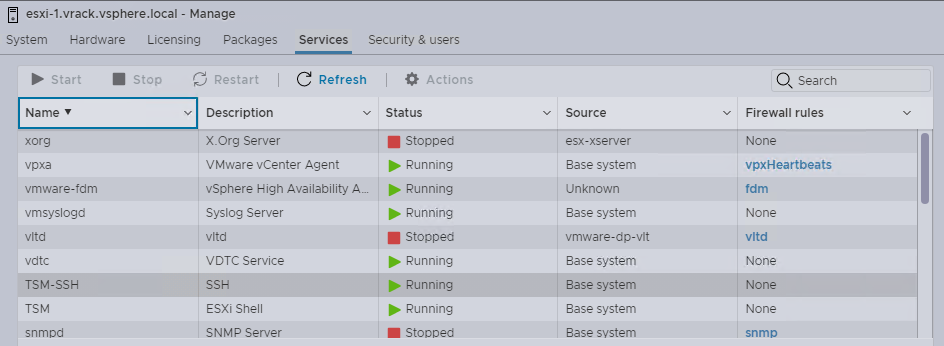If corporate policy requires that you use external CA-signed certificates instead of VMCA-signed certificates for ESXi hosts, you can manually add external certificates to the hosts.
When you install ESXi software on a server to create an ESXi host, the host initially has an autogenerated certificate. By default, when the host is added to a vCenter Server system during bring-up of the management domain or other operations involving hosts (for example, host commissioning, VI workload domain creation, and so on), the autogenerated certificate is replaced with a certificate that is signed by the VMware Certificate Authority (VMCA).
When you use external certificates during bring-up, they are not replaced by VMCA-signed certificates. Once you perform bring-up with external certificates for ESXi hosts, all future hosts added to VMware Cloud Foundation must also use external certificates.
Prerequisites
External CA-signed certificate and key are available.
